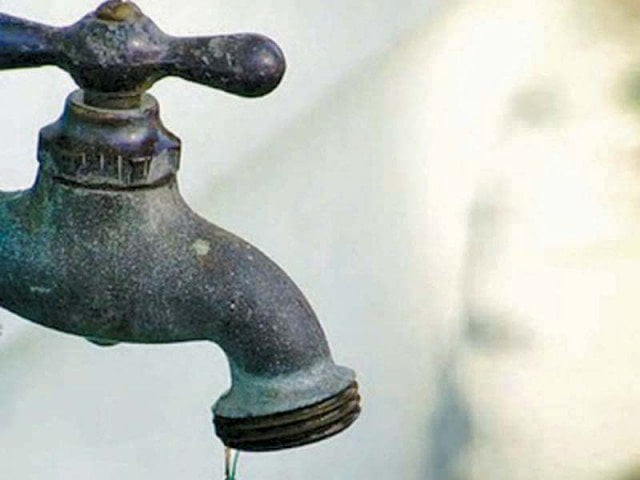WAPDA blames water crisis on devolution
Says provinces have not taken steps to develop water storages

PHOTO: EXPRESS
It is little known that the 18th Amendment has also created more confusion among provinces to cope up with the impending water crisis, says the report.
"No tangible initiative has been taken by provinces to develop water storages," said the report adding that inter-provincial discords "have heightened especially on water distribution" after the devolution.
The problem of capacity constraints of water has given a serious setback to the provinces. The report terms several reasons for the drying up of water reservoirs but also cites devolution as one of the main reasons.
Water reservoirs need of the hour: WAPDA
Earlier in June, two major reservoirs, Tarbela and Mangla Dam reached the dead level. The per capita availability in 1950s was approximately 5,000 cubic metres per annum but it has now declined below 1,000 cubic metres.
The report added that provinces are unwilling to impose any water taxes though the proceeds could be used up for building reservoirs but insist on increasing the share of net hydel profit. The problem of net hydel profit has become a bone of contention among the provinces and the centre has failed during the last five years to resolve the matter amicably.
Moreover, a dispute between the federal and provincial government still persists over the mechanism for determining the net hydel profit and cost of electricity generation, transmission, distribution and line losses. The issue is still pending with Council of Common Interests.
On the contrary, the federal government's grants for WAPDA for developing reservoirs have continued to shrink since 2000. According to statistics, in 2007, about 10 per cent of total share of development funds were being allocated for the projects of WAPDA, which was Rs33.6 billion. However, it has now reached Rs17 billion in 2017-2018, which is 2 per cent of the total funds.
Several anomalies and bureaucratic hurdles have also led to confusion and misunderstanding among provinces, especially after the devolution of water ministry to provinces.
Ministry of Water Resources Federal Flood Commission Head Ahmad Kamal said that the issue of water distribution is complex between Sindh and Balochistan. "Out of the 100,000 cusecs of water released to Sindh, 15,000 to 20,000 cusecs of water gets wasted till reaching the Chashma-Taunsa and Guddu barrages," he added.
Another official from the Indus River System Authority (IRSA) said that the monitoring system between Sindh and the latter was troublesome as figures varied at different levels thus creating confusion about exact situation of water inflows and outflows. "Sindh has been told to have its own robust regulation system but nothing has been done so far," he added.
"Provinces send junior level officers for meeting with the federal authorities after the devolution, which created another problem in absence of senior staff since no substantive decision could be taken," he said, adding "There is also need for collaborative work between irrigation departments of provinces and IRSA including the federal water resources ministry."
Leads CEO Tauqeer Sheikh said that it would be unfair to blame the 18th Amendment for the complexities rather it were the provinces which were to be blamed for the situation country was facing.
IRSA accuses Sindh of stealing Balochistan’s water
He said that the provinces should have their own bodies like Wapda but there was none after the devolution. "Similarly, there is no proper mechanism to collect groundwater data after the devolution and now there is some void because provinces were not playing their due role," he added.
"The only way forward to resolve the crisis is that there should be an inter-provincial committee to decide what the provinces ought to do instead of finger-pointing at other elements and sources," he concluded.



















COMMENTS
Comments are moderated and generally will be posted if they are on-topic and not abusive.
For more information, please see our Comments FAQ